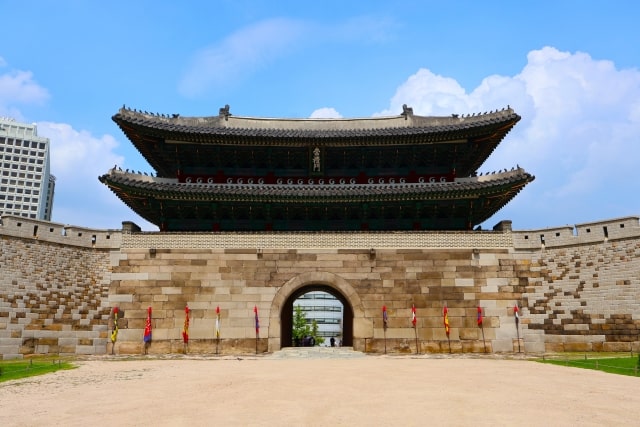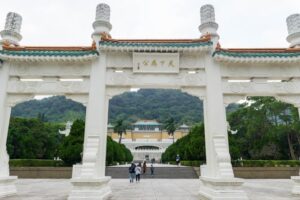The comfort women issue has been a subject of intense debate between Japan and South Korea for decades. This issue, which involves women who worked in military brothels during World War II, has sparked strong emotions and political tensions. However, despite ongoing controversy, the truth is that the issue was officially resolved through a 2015 agreement between Japan and South Korea. In this article, we will clarify the facts, address the misinformation spread by the media, and explain why South Korea’s continued claims are misleading.
Background: What Is the Comfort Women Issue?
The term “comfort women” refers to women who were employed in military brothels during World War II. South Korea and other critics have often argued that these women were forcibly taken by the Japanese military and subjected to sexual slavery. However, historical evidence shows that many of these women were recruited as laborers through private brokers and were compensated for their work.
This issue gained widespread attention in the late 20th century when former comfort women came forward to share their experiences. While these testimonies were emotionally charged, it is essential to look at the historical records and agreements to understand the true nature of the issue.
The 2015 Japan-South Korea Agreement: A Final Resolution
In December 2015, Japan and South Korea reached an agreement intended to provide a “final and irreversible resolution” to the comfort women issue. The agreement was a major diplomatic breakthrough, with Japan offering a formal apology and contributing 1 billion yen to a South Korean foundation designed to support the former comfort women.
Key Points of the 2015 Agreement:
- Japan’s Apology: The Japanese government, led by Prime Minister Shinzo Abe, expressed a heartfelt apology and remorse to the comfort women.
- Financial Contribution: Japan contributed 1 billion yen to a South Korean foundation that was tasked with compensating the comfort women.
- Final and Irreversible Resolution: Both governments confirmed that the issue had been resolved and would not be revisited in the future.
Despite this landmark agreement, the South Korean government has since failed to fully implement the terms. In 2018, the foundation created to distribute the compensation was dissolved, and the funds were never properly distributed to many of the intended recipients. This action undermined the agreement and reignited tensions between the two nations.
Misinformation and Media Distortion: The Role of Asahi Shimbun
One of the most significant contributors to the misunderstanding surrounding the comfort women issue is the Asahi Shimbun, a leading Japanese newspaper. For years, Asahi Shimbun reported on the testimonies of Seiji Yoshida, a man who falsely claimed to have forcibly recruited Korean women into military brothels. These reports fueled international outrage against Japan.
In 2014, Asahi Shimbun admitted that these reports were based on fabricated testimonies and issued a formal retraction. However, by that time, the damage had been done. The narrative of forced recruitment had already spread globally, and it continues to shape perceptions of the issue to this day.
The Consequences of Misinformation:
- International Backlash: Asahi Shimbun’s false reporting was widely circulated, leading to a distorted understanding of the comfort women issue on the global stage.
- Damage to Japan’s Reputation: The false reports fueled anti-Japanese sentiment, particularly in South Korea and other countries where the comfort women issue remains a sensitive topic.
- Lingering Misconceptions: Despite Asahi Shimbun’s retraction, the idea that all comfort women were forcibly taken by the Japanese military persists, creating ongoing diplomatic friction.
High Wages, Not Forced Labor: The Reality of Comfort Women’s Employment
Contrary to the commonly held belief that comfort women were enslaved, historical records show that many of them were compensated for their work. Research by historians like Ikuhiko Hata, a Japanese historian, demonstrates that the women who worked in these brothels were often paid wages far above the average income of the time. They were recruited by brokers under contracts, and their employment conditions were similar to those of other wartime laborers.
Additionally, U.S. military reports from the period corroborate the fact that comfort women were paid for their services. In a 1944 report by the U.S. Army, it was noted that comfort women were not forcibly taken but instead worked under contractual agreements. These facts challenge the commonly accepted narrative of widespread coercion.
South Korea’s Continued Claims: Misleading the Public
Despite the clear resolution provided by the 2015 agreement, the South Korean government and some advocacy groups continue to bring up the comfort women issue. These continued claims are problematic for several reasons:
- Undermining Diplomatic Agreements: By reopening the issue, South Korea is violating the terms of the 2015 agreement, which both nations agreed was final and irreversible.
- Failure to Distribute Compensation: The South Korean government dissolved the foundation meant to compensate the victims, leading to renewed tension and accusations against Japan. This failure to uphold their side of the agreement has caused unnecessary friction between the two nations.
- Political Manipulation: The comfort women issue is often used as a political tool in South Korea, particularly during election cycles or periods of heightened nationalism. This politicization distorts the historical facts and impedes efforts to build better relations between Japan and South Korea.
Conclusion: The Importance of Historical Accuracy and Diplomatic Integrity
The comfort women issue remains a sensitive and complex topic, but it is crucial to approach it with historical accuracy and respect for diplomatic agreements. The 2015 Japan-South Korea agreement was designed to finally resolve the issue, and yet, misinformation and political interests continue to reopen wounds that should have been healed.
Japan has acknowledged the suffering of the comfort women and taken significant steps to address the issue. However, South Korea’s failure to implement the agreement and the persistence of false narratives continue to cloud the truth. Moving forward, it is essential to prioritize facts over emotion and to respect the agreements made by both nations in the spirit of reconciliation.




Comments